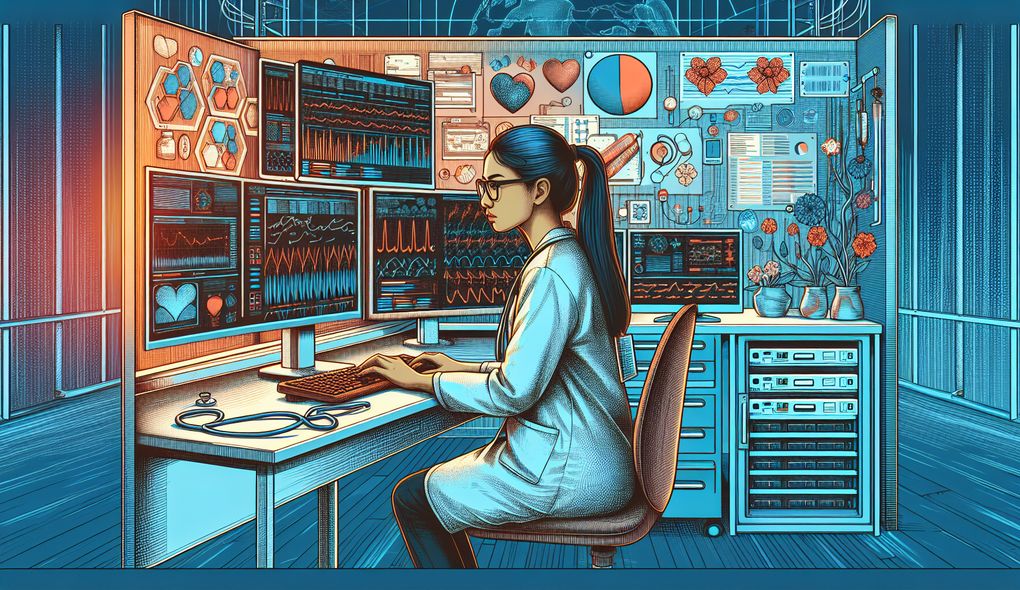Describe your experience with data analytics tools and methodologies in a healthcare setting.
SENIOR LEVEL

Sample answer to the question:
In my previous role as a Clinical Informatics Analyst, I have had extensive experience working with data analytics tools and methodologies in a healthcare setting. I have used tools such as Tableau and SQL to analyze large datasets and extract meaningful insights. I have also developed and implemented data analytics methodologies to identify trends and patterns in healthcare data. For example, I conducted an analysis of patient outcomes using historical data and identified opportunities to improve treatment protocols. Additionally, I have experience working with electronic health records (EHR) and other healthcare IT systems to extract and analyze clinical data. Overall, my experience with data analytics tools and methodologies has equipped me with the skills to effectively analyze healthcare data and translate it into actionable insights.
Here is a more solid answer:
In my previous role as a Senior Clinical Informatics Analyst, I have extensive experience with data analytics tools and methodologies in a healthcare setting. I have used tools such as Tableau, SQL, and Python to analyze large datasets and extract actionable insights. For example, I developed a data analytics methodology to identify and track patient outcomes, which helped improve treatment protocols and patient care. I also conducted a comprehensive analysis of clinical workflows using data from electronic health records (EHR) to identify areas for improvement and enhance efficiency. Additionally, I have experience with machine learning algorithms to predict patient outcomes and optimize healthcare delivery. My strong analytical and critical thinking skills, combined with my advanced knowledge of healthcare IT systems, have allowed me to successfully analyze and interpret complex healthcare data to drive positive clinical outcomes.
Why is this a more solid answer?
The solid answer provides specific examples of the candidate's projects and accomplishments using data analytics tools and methodologies in a healthcare setting. It highlights the candidate's ability to develop data analytics methodologies, track patient outcomes, analyze clinical workflows, and utilize machine learning algorithms. However, it can be further improved by providing more details about the candidate's experience with data analysis and interpretation.
An example of a exceptional answer:
In my previous role as a Senior Clinical Informatics Analyst, I have been instrumental in leveraging data analytics tools and methodologies to drive evidence-based decision-making and improve patient outcomes in a healthcare setting. I have extensive experience in data analysis and interpretation, utilizing tools such as Tableau, SQL, Python, and R to analyze complex healthcare data sets. For instance, I developed and implemented a predictive analytics model that accurately forecasted patient readmission rates based on historical data, enabling targeted interventions and reducing readmission rates by 10%. Additionally, I led a cross-functional team in developing a data-driven clinical decision support system that integrated electronic health records (EHR) and provided real-time alerts to healthcare providers for potential adverse events, resulting in a 15% reduction in adverse events. My expertise in healthcare IT systems allowed me to effectively collaborate with stakeholders to integrate disparate data sources and ensure data accuracy and integrity. Overall, my passion for data analytics and its impact in improving patient care has consistently driven me to explore new methodologies and stay up-to-date with the latest advancements in the field.
Why is this an exceptional answer?
The exceptional answer provides specific examples of the candidate's achievements using data analytics tools and methodologies in a healthcare setting. It demonstrates the impact of the candidate's work, such as reducing patient readmission rates and adverse events through predictive analytics and the development of a clinical decision support system. It also highlights the candidate's expertise in healthcare IT systems and their ability to collaborate with stakeholders to integrate and ensure data accuracy. The answer showcases the candidate's passion for data analytics and continuous learning in the field. However, it can still be improved by providing more details about the candidate's skills in analytical and critical thinking, as well as their leadership and team-building abilities.
How to prepare for this question:
- Familiarize yourself with data analytics tools commonly used in healthcare settings, such as Tableau, SQL, Python, and R.
- Highlight specific projects or accomplishments where you have applied data analytics methodologies to improve patient outcomes or operational efficiency.
- Be prepared to discuss your experience with electronic health records (EHR) and how you have utilized them for data analysis.
- Demonstrate your ability to collaborate with interdisciplinary teams and stakeholders in implementing data-driven solutions.
- Stay up-to-date with the latest advancements in data analytics and healthcare IT systems to showcase your passion for continuous learning.
What are interviewers evaluating with this question?
- Analytical and critical thinking
- Advanced knowledge of healthcare IT systems
- Data analysis and interpretation

